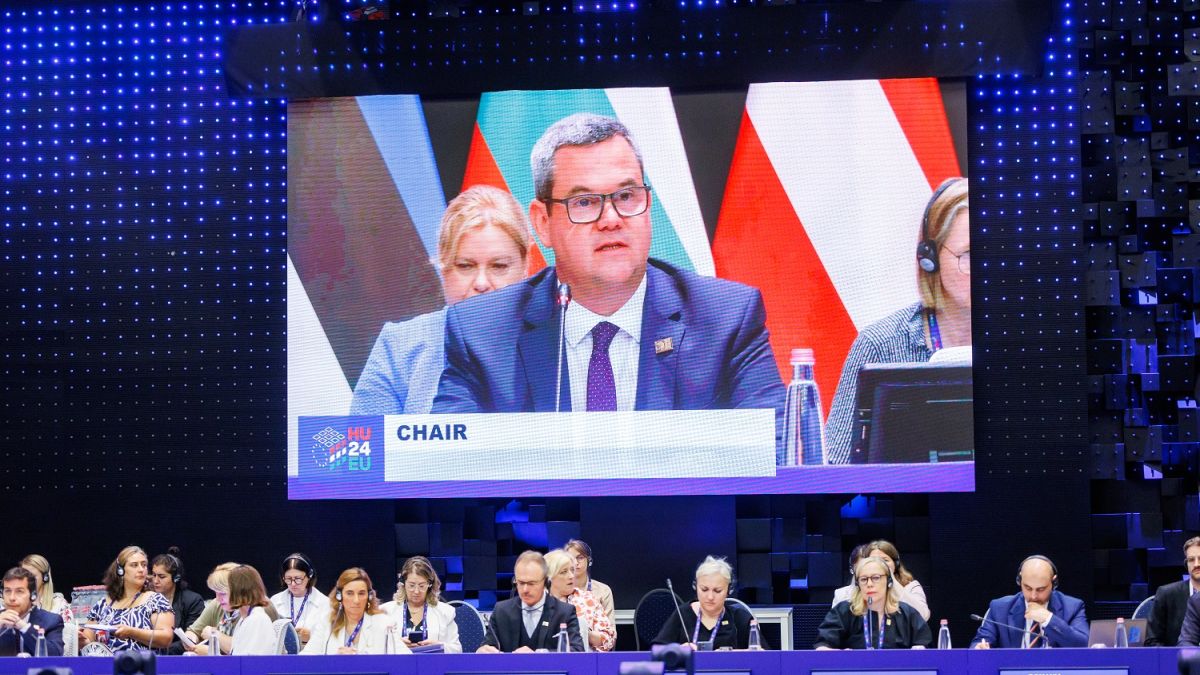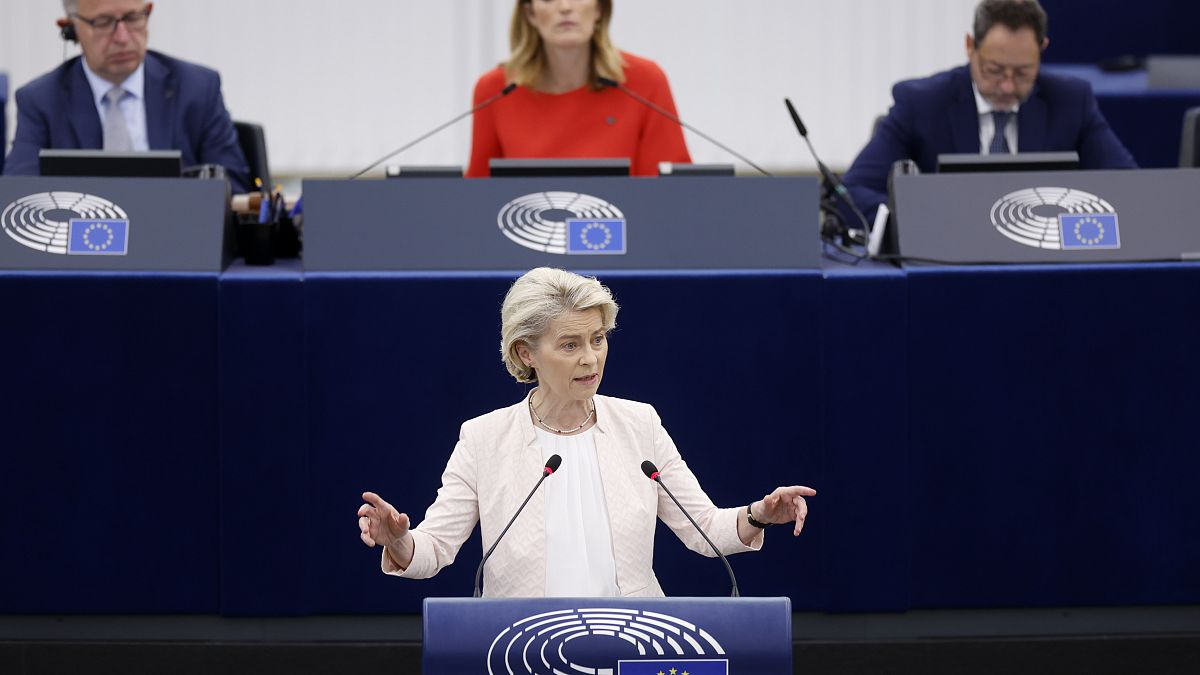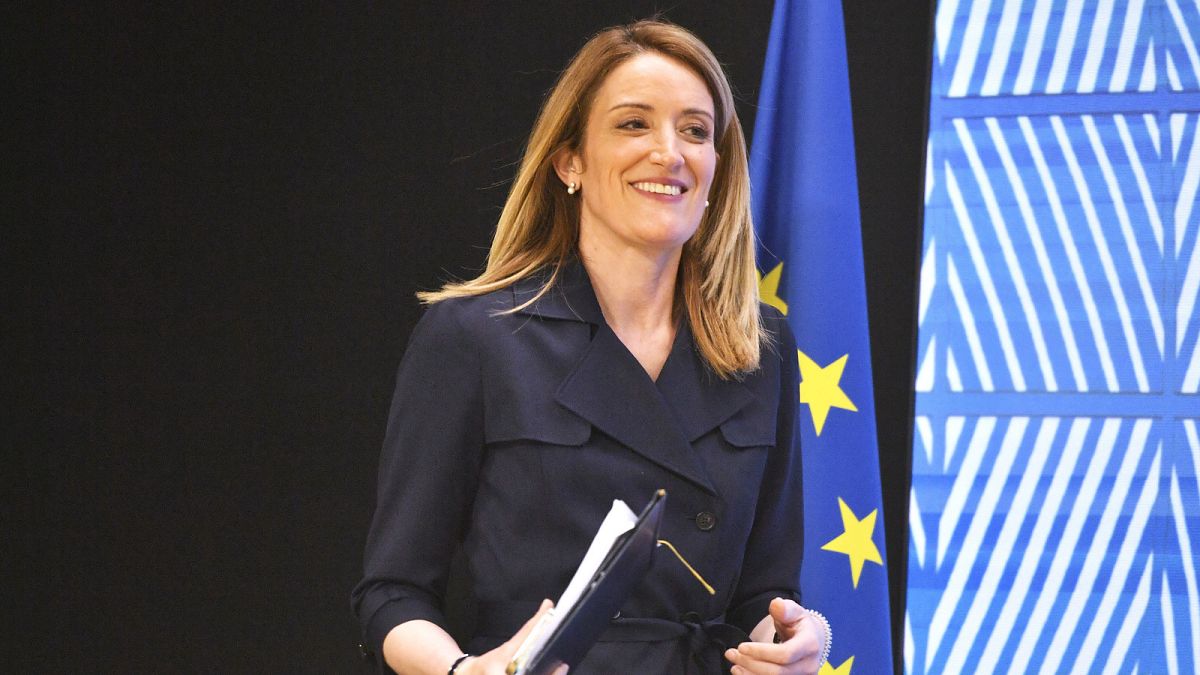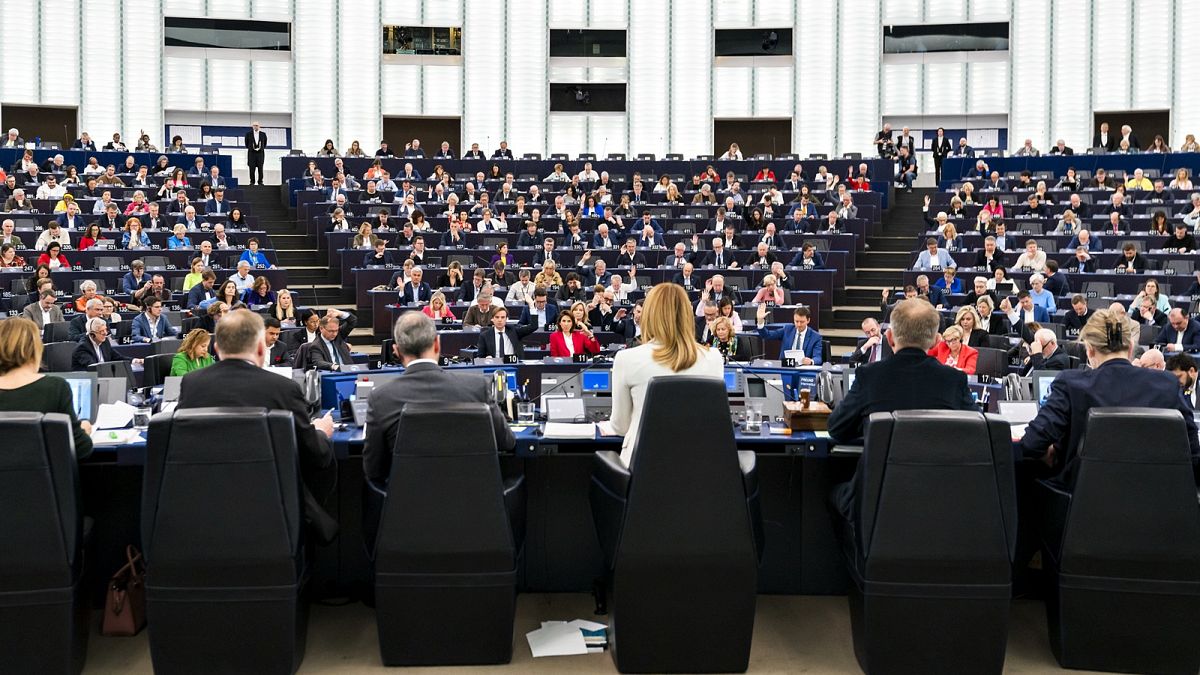World
What do newly approved anti-money laundering rules cover?
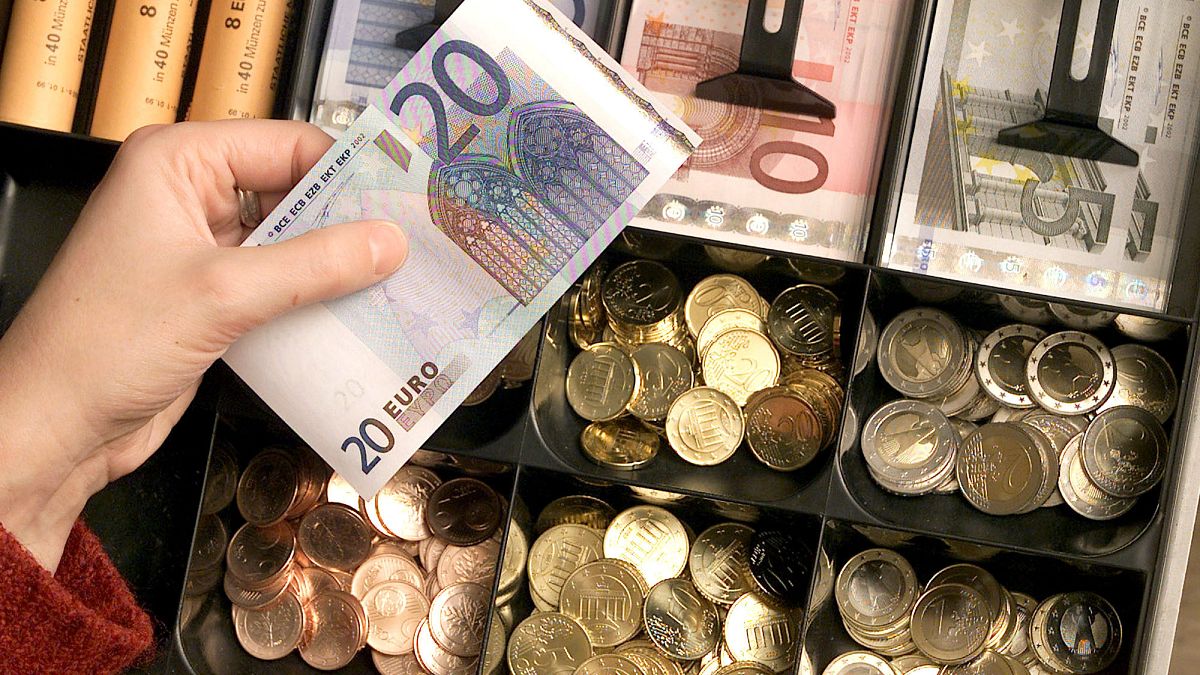
EU lawmakers voted in a landslide in favour of new curbs on crypto, football clubs and cash transactions.
EU lawmakers today voted 482 to 47 to set up a long-promised EU anti-money laundering agency, as part of a package that would also see large cash payments banned across Europe.
The move – taken by MEPs at their last voting session before June elections – means new rules apply for football deals and crypto transactions, as the bloc seeks to repair its reputation after a series of financial-sector scandals.
“Dirty money finances terrible crimes,” EU financial services commissioner Mairead McGuinness said, adding that there was an “absolute imperative to improve significantly on the current situation”.
Those views seemed largely shared across the political divide – including by Damien Carême (France/Greens), one of the MEPs who led negotiations.
Terrorists and fraudsters “exploit the loopholes in European legislation”, Carême told lawmakers. “We have to act decisively to ensure a robust system.”
What do new EU money-laundering rules do?
New rules include a limit on professional traders accepting or paying cash for any transaction over €10,000 – given that big wads of untraceable banknotes can send alarm bells over financial crime.
Some lawmakers claim that’s an attack on financial freedom.
“Keep your hands off our cash and our digital currencies,” Patrick Breyer of the German Pirate Party told lawmakers. “We Pirates say no to this creeping financial disenfranchisement.”
Yet one of the most touchy subjects of the complex package has been geographical: the question of where to house a new EU anti-money laundering agency.
After a first-of-a-kind 12-hour public hearing, German financial centre Frankfurt won out, from a slate of candidates that also comprised Paris, Rome, Madrid, Vienna, Riga, Vilnius, Brussels and Dublin.
Its 400-odd staff will directly supervise dirty-money controls at 40 of the bloc’s biggest financial institutions.
Expanded scope of new anti-money laundering laws
EU money laundering laws already apply to big institutions like banks, who are required to verify who their customers are, and report suspicious transactions to the authorities.
Those rules will also apply to high-risk sectors like traders in artwork, jewellery and luxury yachts. They’ll be extended to cover innovative services like cryptocurrency providers—as lawmakers are concerned bitcoin and other, even more anonymous assets can be used for illicit payments.
At MEPs’ insistence, the measures apply to major football clubs and agents – given the large amounts of sometimes dubious money that circulates between them.
More consistent rules
For the first time ever, the EU’s rules are set out in a regulation that will apply more or less consistently across the bloc.
That means less discretion for each country to tweak rules for the national context – creating discrepancies that make it harder for legitimate businesses to operate across borders, and easier for criminals and terrorists to exploit the system.
A separate money laundering directive, also agreed today, resolves issues over how journalists and activists can trace the financial structures used to hide wealth.
Arrangements were thrown into disarray by a shock 2022 EU court judgment that restricted access to company ownership registers on privacy grounds.
Why does the EU need new anti-money laundering rules?
Officials hope the new rulebook will help improve the EU’s reputation for dirty money, closing the chapter on a series of scandals.
Two EU members – Croatia and Bulgaria – currently sit on a “grey list” of suspect money laundering jurisdictions compiled by international standard-setter the Financial Action Task Force (FATF), and Malta was only recently taken off it.
The region also faced a series of financial-sector scandals involving institutions such as Danske Bank, Latvia’s ABLV, and Malta’s Pilatus bank.
Danske was fined billions of euros by US and Danish regulators in 2022, after admitting that around €200bn was laundered through its Estonian arm between 2007 and 2015.
EU talks were given extra salience by the need to enforce sanctions imposed on Russia for its war in Ukraine – given fears that ultra-wealthy oligarchs can use shady financial structures to evade curbs.
When will new EU money laundering rules take effect?
New anti-money laundering controls have been a long time coming, and it’s still not over.
Valdis Dombrovskis berated uneven enforcement and promised to examine a new EU agency in his hearing to become EU financial services commissioner as far back as October 2019.
After several last-minute wrangles, lawmakers and governments announced a tentative deal on the bulk of the law in January 2024.
Once nodded through by national ministers, much of the new regulation kicks in after three years, but there is some flexibility.
Rules for the football sector will take five years to apply, and the new EU agency could start work later this year – though the law setting it up takes effect formally in July 2025.

World
Celine Dion Makes Triumphant Comeback at Paris Olympics Opening Ceremony — Watch Full Performance

ad
World
95 Libyan nationals arrested in South Africa at suspected secret military training camp
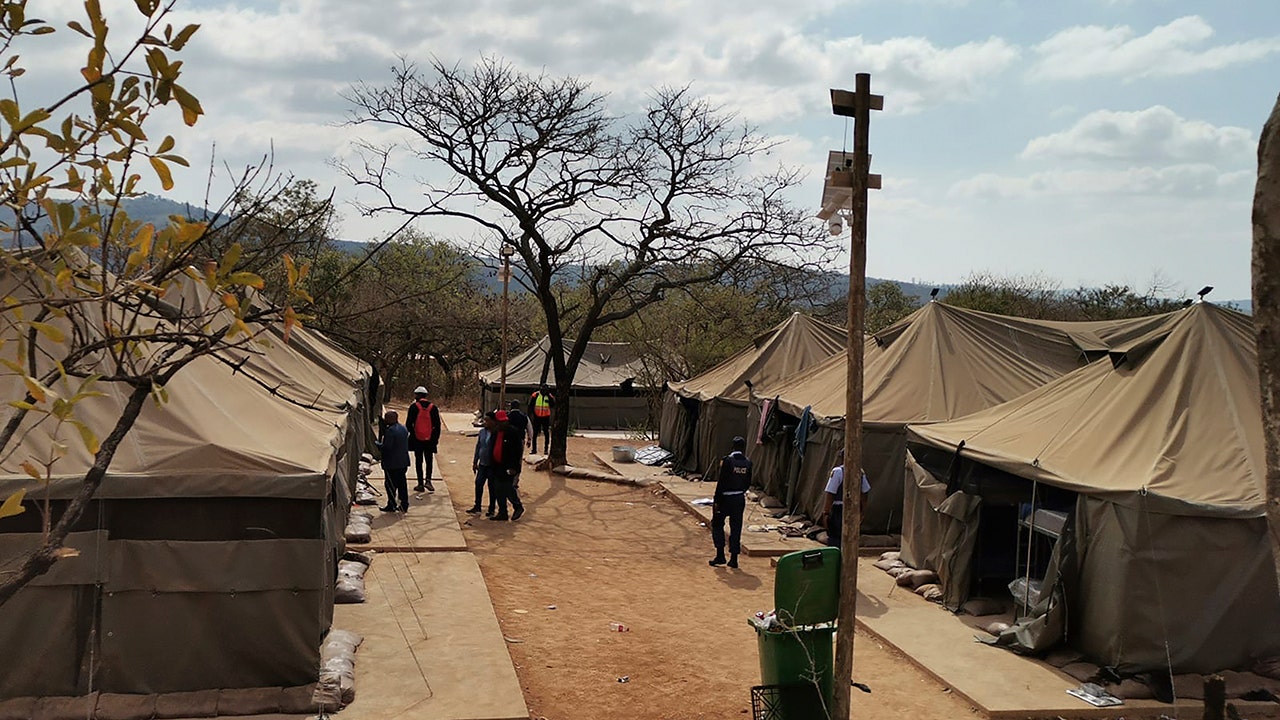
South African police arrested 95 Libyan nationals in a raid on a suspected secret military training camp on Friday and authorities said they were investigating whether there were more illegal bases in other parts of the country.
The camp was discovered at a farm in White River in the Mpumalanga province, about 360 kilometers (220 miles) northeast of Johannesburg, police said.
ELEPHANTS KILL TOURIST IN SOUTH AFRICA AFTER HE TRIED TO GET CLOSE TO TAKE PICTURES
National police spokesperson Athlenda Mathe said in a post on the social media site X that the Libyans stated they had entered the country on study visas to train as security guards, but police investigations suggest they have received military training.
The Newzroom Afrika TV news channel broadcast pictures of the site of the arrests, showing a military-style camp with large green and khaki tents set up in a row. Dozens of men were seen lining up as they were arrested. They were wearing civilian clothing.
Local government official Jackie Macie said investigations were ongoing and the owner of the farm would be questioned. He said authorities received information that there were similar secret camps near two other towns in Mpumalanga province.
A camp where 95 Libyan nationals were arrested on suspicion of running an illegal military camp are seen lining up after their arrest on Friday, July 26, 2024 in White River, South Africa. Police say that 95 Libyan nationals were arrested on suspicion of receiving training at a secret military camp in the north of the country. (AP Photo/Bulelwa Maphanga)
The province borders neighboring countries Mozambique and Swaziland and is an area of concern for South African authorities with regards to illegal immigration.
Police and authorities have not said whether the camps are suspected of being connected to a particular group or conflict.
Macie said investigations would establish if there was a network of camps in South Africa and show “why they are here doing military training in our country.”
Police said the men may be linked to crimes reported in communities close to the farm in recent months.
“We have serious cases which have been opened with the police, including cases of rape and armed robberies, which complainants claim were committed by unknown foreigners who seem to be of Asian descent,” said police spokesman Donald Mdhluli.
“We take what we have found here today very seriously because we don’t know who was training them, what were they being trained for and why that training is happening here in South Africa. It may be a threat not only to South Africa but also to the entire southern Africa region.”
Police said the operation to arrest the Libyans and close down the camp began two days ago. Macie said the Libyan nationals had been in the country since at least April.
“The 95 individuals taken into custody are all Libyan nationals and are currently being questioned by the relevant authorities,” Mpumalanga acting provincial police commissioner Maj. Gen. Zeph Mkhwanazi said in a statement.
Mdhluli, the police spokesman, said the country’s security regulator had confirmed that the kind of training that appears to have been taking place at the camp was well beyond the scope of training for security guards.
“The kind of equipment we found here shows that there was intense military training taking place here. This was basically a military base.”
World
Passengers face long, uncertain wait at stations amid rail disruption

A deliberate fire in a signal box about 60 km south of Lille caused the disruption on the northern high-speed line, with traffic halted around 5 a.m. local time on Friday.
Travel was severely disrupted in Lille on Friday, one of the stations affected by the sabotage that hit major French rail lines ahead of the Paris Olympics opening ceremony.
Many passengers waited with hope that soon turned to resignation.
“We’ve been waiting since 10:38 a.m. for the 11:38 a.m. train, and now we’re just waiting for it to arrive at 2:08 p.m.,” said Delphine, one of the stranded passengers.
“It’s still quite a delay, and we’ll be even later since we’re on a secondary route. I work in Avignon at 9 p.m., so it’s going to be very, very tight. We have a concert tonight — will it even happen? This is all very confusing, and we don’t understand what’s going on.”
For one traveller, this was a rough start to the holidays. “The worst case would be if the train is cancelled entirely and we have to buy new tickets for next week. It would shorten our already brief vacation. That would be a huge problem,” said Hippolyte.
When asked if he had been informed of the delays, Hippolyte said he received the notification just before departure.
“At around 10 a.m. this morning, we were told we were an hour late and would be leaving at 1 p.m.”
“It just keeps getting later as the day goes on. Every time we approach the new departure time, it gets pushed back another hour and a half, or half an hour each time.”
A deliberate fire in a signal box about 60 km south of Lille caused the disruption on the northern high-speed line. Traffic was halted around 5 a.m. on Friday.
The recent acts of sabotage on the rail network highlight that the Olympic Games are turning France into a prime target.
The attack disrupted the transport system on the opening day of the Games, causing delays of up to two hours or even cancellations that affected hundreds of thousands of passengers nationwide.
Authorities in Paris have said they are deploying substantial human resources to counter any threats and to ensure the safety of the events.
-

 World1 week ago
World1 week agoOne dead after car crashes into restaurant in Paris
-

 Midwest1 week ago
Midwest1 week agoMichigan rep posts video response to Stephen Colbert's joke about his RNC speech: 'Touché'
-

 News1 week ago
News1 week agoVideo: Young Republicans on Why Their Party Isn’t Reaching Gen Z (And What They Can Do About It)
-

 Movie Reviews1 week ago
Movie Reviews1 week agoMovie Review: A new generation drives into the storm in rousing ‘Twisters’
-

 News1 week ago
News1 week agoIn Milwaukee, Black Voters Struggle to Find a Home With Either Party
-

 Politics1 week ago
Politics1 week agoFox News Politics: The Call is Coming from Inside the House
-

 News1 week ago
News1 week agoVideo: J.D. Vance Accepts Vice-Presidential Nomination
-

 World1 week ago
World1 week agoTrump to take RNC stage for first speech since assassination attempt

